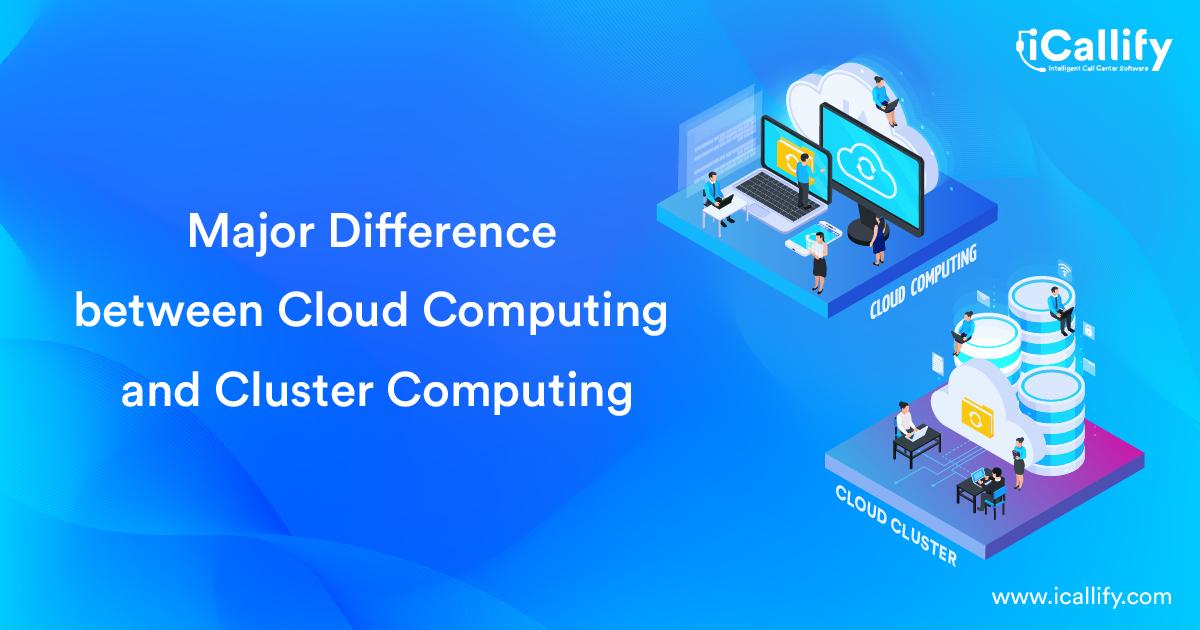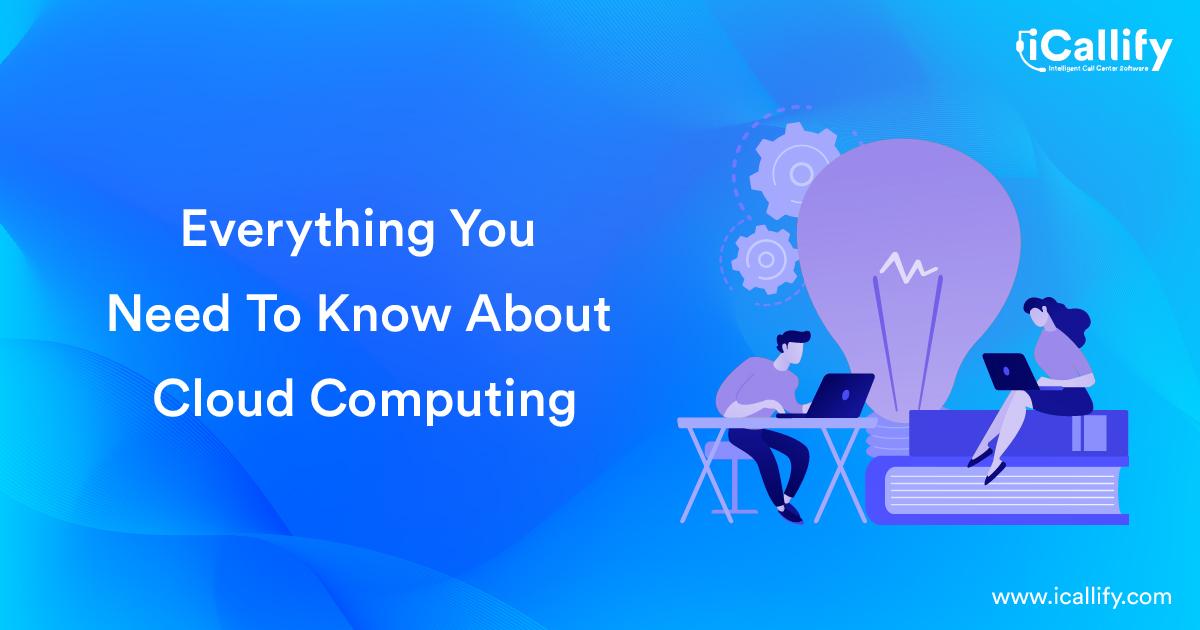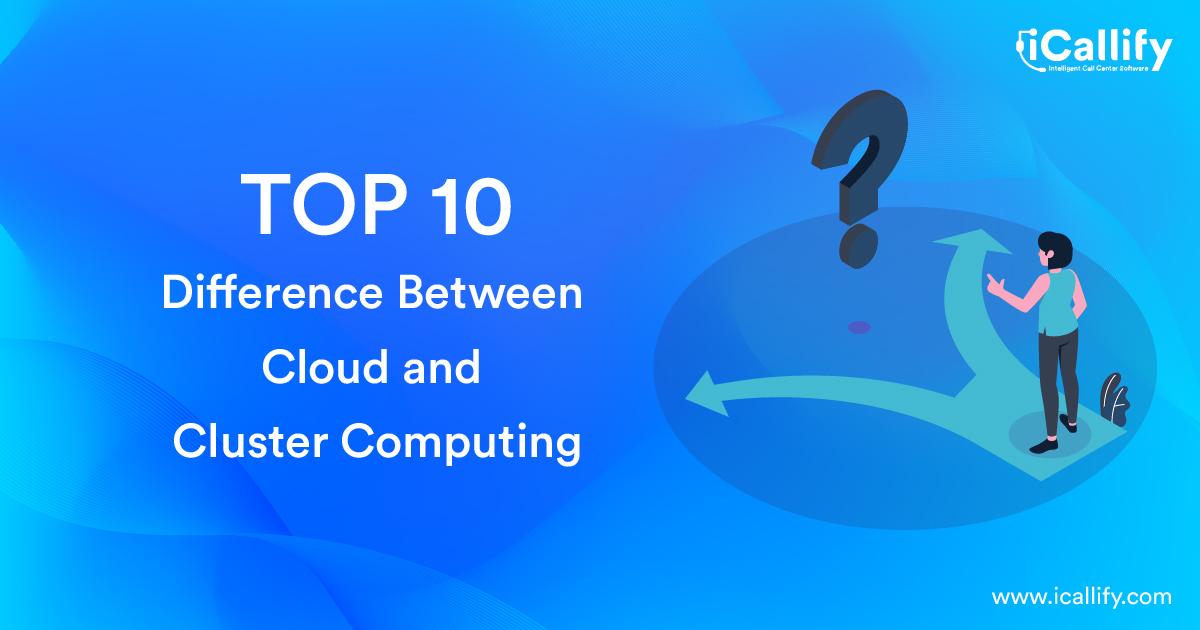
Two major terms to understand: Cloud Computing and Cluster computing and what are the major difference between Cloud Computing and Cluster Computing. Recently, interest has surged in decreasing the power of computer processors and boosting overall system performance. As a result, designers have continuously designed and redesigned multicore processors to accommodate the ever-increasing challenges in computing.. Rising complications have evolved in the IT and ICT sector, necessitating the transformation of traditional computing environments to suit current demand. The majority of conventional computing processors were homogeneous, meaning they all shared the same properties. The increased workload overloaded homogeneous processing environments, resulting in the emergence of heterogeneous processing environments. In contrast to homogeneous processors, they have diverse features for the same processor. One such setup that has become popular, especially, with software solutions like call center software is a cloud with cluster.
With cloud hosting platforms, different types of setup are possible including the cluster setup. It benefits businesses in multiple ways. This blog post compares two different setups on cloud platforms for a call center solution.
What is Cloud Computing?
Cloud computing, primarily through the internet, delivers many different types of resources as services, and it is a new technology. The service provider is the delivering party, and subscribers are the users. Subscribers often pay subscription fees on a per use basis.
Cloud computing is classified into several categories based on the type of service supplied.
- SaaS (Software as a Service): It is a cloud computing category in which software applications like call center software are the primary resources accessible as a service.
- PaaS (Platform as a Service): It is a cloud computing category/application in which service providers supply a computer platform or a software framework to their subscribers through the internet.
- IaaS (Infrastructure as a Service): It is a cloud computing category in which the primary resources offered as a service are hardware architecture.
- DaaS (Desktop as a Service): It is a new model that provides a complete desktop experience via the internet.
Read also : Cloud Call Center Software with Cluster Setup
Setting up a cluster of cloud call center software with cluster setup on your choice cloud computing provider is what cloud with cluster setup entails. There will be numerous nodes in this scenario that will function in parallel to form a clustered network. Each node may employ shared or dedicated resources to execute a software program, such as a cloud based call center solution, and take advantage of the benefits of a cluster based arrangement on a cloud host.
Explore the major differences between cloud and cluster computing with our expert help
Explore the major differences between cloud and cluster computing with our expert help
A cloud based call center solution gives better service to customers than local servers since cloud computing consumers simply utilize services and there is no need for server and security upkeep because everything is controlled by the providers of cloud services. Cloud servers outperform local servers in terms of performance.
What is Cluster Computing?
Cluster computing for call center software is a technology in which numerous computers are linked together over a network and operate as a unified entity. These linked computers form a cluster. When we join a computer to this network, we refer to it as a node.
The linked computers work together to complete tasks. As a result, it delivers quicker processing speed. We link computers to the network via high-speed local area networks (LANs). When compared to huge servers, clustering PCs is not costly. Moreover, it guarantees that the processing space is always available.
The most typical applications of cluster computing are load balancing and high availability. Numerous networked computers share a single job and work as a unified unit in a load balancing cluster. The system spreads any workloads arriving in the system across the computers in the cluster, ensuring an even distribution of the work. This enhances the overall system performance.
What is the Difference Between Cloud and Cluster Computing for Call Center Software?
The cloud computing for call center solution is a technology that provides many different types of resources as services, mostly through the internet, whereas cluster computing focuses on improving service performance and availability by linking a group of stand-alone workstations to form a unified computing resource.
Cloud computing is a computer method that makes resources available over the internet, offering these resources as a service, most of the time extendable and highly visible. These resources might be classified as apps, platforms, or infrastructure. A group of stand-alone computers in cluster computing couples to create one unified computing resource that can outperform a single computer in terms of performance and availability.
Clusters are mostly used for load balancing and high availability, whereas cloud contact center solutions are concerned with offering services such as software, platforms, and so on. Yet, it is vital to highlight that cloud computing establishes itself on a server cluster.
Location
- Cloud Computing: The internet provides resources and services accessible from anywhere with an internet connection.
- Cluster Computing: Involves a group of interconnected computers that work together within a localized environment, such as a data center.
Connection
- Cloud Computing: Relies on internet connectivity to access and utilize resources hosted on remote servers.
- Cluster Computing: Requires high-speed, low-latency connections within the cluster for efficient communication between nodes.
Consist of
- Cloud Computing: Services are hosted on virtualized infrastructure managed by a third-party provider.
- Cluster Computing: Involves a cluster of interconnected physical or virtual machines that work together to solve a specific task.
Security
- Cloud Computing: The cloud service provider typically manages security measures, and users rely on the provider’s security protocols.
- Cluster Computing: Security is generally the responsibility of the organization or entity managing the cluster, allowing for more direct control over security measures.
Maintenance
- Cloud Computing: The cloud service provider handles maintenance tasks, such as updates and patches..
- Cluster Computing: Requires more hands-on maintenance and management by the organization that owns or operates the cluster.
Execution
- Cloud Computing: Tasks run on virtualized resources, often with dynamic scalability based on demand.
- Cluster Computing: Cluster nodes distribute tasks, and parallel processing enhances performance.
Operating System (OS)
- Cloud Computing: The cloud provider manages the underlying operating system, limiting users’ control over it..
- Cluster Computing: Offers more flexibility, allowing users to choose and configure the operating system for their specific needs.
Cost-Effectiveness
- Cloud Computing: Often considered cost-effective for variable workloads due to the pay-as-you-go pricing model.
- Cluster Computing: May be more cost-effective for consistent and high-performance computing needs, but requires upfront investment.
Suitable For
- Cloud Computing: Well-suited for applications with varying resource demands, remote access requirements, and scalability needs.
- Cluster Computing: Ideal for tasks that require high computational power, low-latency communication between nodes, and specialized configurations.
Areas of Application
Cluster computing primarily suits industrial centers, healthcare and research centers, and national-level service providers. On the other hand, cloud computing best suits banking, finance, insurance, space exploration, and weather forecasting. Network architects use Infrastructure As A Service (IAAS), developers use Platform As A Service (PAAS), and end users use Software As A Service (SAAS).
| Parameter | Cloud Computing | Cluster Computing |
| Purpose | Offering on demand IT services and resources. | Using a modular strategy to complete an advanced level complex task. |
| Type of resource | Heterogeneous resource type. | Homogeneous resource type. |
| Sharing of resources | Certain designated resources cannot be shared. | Specific assigned resources are not shareable. |
| Virtualization | Virtualization of hardware and software resources. | No virtualization resources. |
| Security | It is possible to obtain security through isolation. | It is possible to achieve security with node credentials. |
| Initial Expense | The initial expense for setup is really minimal. | The initial capital expense for setup is very high. |
| Security Requirement | Very low | Very high |
| Maintenance | Requires low maintenance. | Requires little higher maintenance. |
| Scalability | Allowed | Limited |
| Hardware | There is no physical hardware needed. | More hardware requirements physically. |
| Operating System | Multiple OS runs in Virtual Machines. | Windows, Linux |
| User Management | User management can be centralized or outsourced to a vendor/third party. | User management is centralized. |
| Architecture | User chosen architecture. | Cluster oriented architecture. |
| Characteristic | Dynamic computing infrastructure/resources/services | Tightly coupled systems/resources |
| Dependency on software | Domain independent software. | Domain dependent software. |
| Implementation | Difficult (Host is required to do it) | Easy |
| Internet | Internet access is needed. | Internet access is not needed. |
| Interoperability | No | Yes |
| Resource management | Both centralized and distributed. | Centralized (Locally) |
| Examples | Facebook, Gmail | Google search engine, Earthquake simulation. |
Concluding Notes
The globe is evolving more rapidly than ever before, and digital technologies are causing unparalleled transformation and altering our work and lifestyles in ways we never imagined. The concept of digital transformation is widely debated these days The Internet of Things (IoT), big data, social media, cloud computing, cloud cluster solution, blockchain, and augmented reality are propelling businesses to new heights in digital consumer interaction and IT-enabled business processes and services. A cloud call center solution is a crucial component of the technological ecosystem for digital transformation. We may have encountered problems due to slower computer operations and content criticality. When the data is vital and needs to be processed quickly, Cloud with cluster comes in handy.
We have the most reliable call center solution that can be setup with any model on cloud platforms. We provide these setup services based on customer requirements and business models. Let us help you select the best hosting model and computing resources to maximize your returns. To initiate discussion, contact us.




Leave a comment